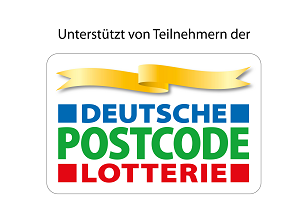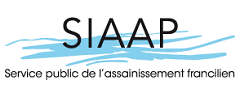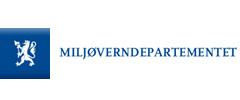Parma 2010: A small step forward on asbestos
Eastern European, Caucasus and Central Asia countries - producers and users of chrysotile asbestos – have committed to work on elimination of asbestos related diseases in cooperation with WHO and International Labour Organisation.
12.03.2010 | WECF Press Release
Eastern European, Caucasus and Central Asia countries - producers and users of chrysotile asbestos – have committed to work on the elimination of asbestos related diseases until 2015, in cooperation with the World Health Organisation and the International Labour Organisation.
Parma, Italy: Today the Ministerial Declaration ‘Parma declaration on Environment and Health’ was adopted by 53 European countries from WHO-Euro region. The ministerial declaration, in its “commitments to act”, states asbestos among the carcinogenic substances, and sets the concrete date of 2015 by which the Eastern European countries need to have national plans to eliminate asbestos-related diseases.

Sascha Gabizon is Executive Director of the NGO Women in Europe for a Common Future (WECF); she heads the environmental NGO delegation and was present at the adoption of the ministerial declaration on March 12: “at the very last moment only the Russian Federation objected to formulations in the declaration. The declaration was adopted after-all by acclamation of all participants, and no country objected”.
The initial ministerial declaration, foresaw a commitment to ban asbestos in construction materials by 2015. Vested asbestos interests from Eastern Europe prevented that this commitment for banning asbestos was adopted.
Alexandra Caterbow, chemical spokesperson of WECF stated: “I am bitterly disappointed at the power of asbestos vested interests to frustrate the hard work of the drafting group and the wishes of the majority of the member states. WECF has tested chrysotile asbestos from several Eastern European countries, and we are in no doubt whatsoever of the hazardous risk to their environmental health that asbestos poses”.
Laurie Kazan-Allen, Coordinator of the International Ban Asbestos Secretariat, echoed Caterbow’s comments: “Because of this lack of a commitment to start phasing–out chrysotile asbestos now, it can be expected that many thousands of people in that region will die from cancer. In the EU, despite the fact that the 27 member states have already banned asbestos, more than 400,000 people will die of the affects of asbestos in the coming decade, due to the long latency period”.
Caterbow: “By replacing the previously negotiated asbestos phase-out with the new wording, industry lobbyists have bought themselves more time to continue selling a material deemed as carcinogenic by all major international organizations tasked with protecting public and occupational health including the World Health Organization, the International Labour Organization and the International Agency for Research for Cancer”.
Gabizon stated: “there exists no safe level, nor safe use of chrysotile asbestos. The only way to eliminate asbestos-related diseases is through a ban of asbestos – as more than 45 countries have already done,- but not yet any of the Eastern European and Central Asian countries”.
Alexandra Caterbow continued: “Nevertheless, the Parma Declaration is a small step forward, for these Eastern countries in which chrysotile asbestos is a main construction material and where industry and government agencies continue to deny that chrysotile asbestos is a potent carcinogen. Most of workers in the asbestos and construction sector, and the general public, in the EECCA region, do not know how dangerous this material is and use it without any protection, since they were told that "their" asbestos is different and safe”.
Gabizon: “We see children playing on heaps of broken chrysotile asbestos slates, we see schools and playgrounds build with asbestos containing material. Parents do not know that their children risk to develop a deadly disease”.
There is a severe lack of data on asbestos related diseases in many EECCA countries. No cancer or occupational health registers exist. Many countries do not have national programs to eliminate asbestos related diseases.
Alexandra Caterbow: “the Parma Ministerial Declaration now gives a mandate to WHO and ILO to work with the Eastern countries, to bring the many asbestos-related death into the spotlight, and to build awareness and support for substituting all chrysotile asbestos with safer, locally produced, alternatives”.
Notes to Editors
• For further information, contact: Sascha Gabizon, Executive Director of WECF, by email: sascha.gabizon@wecf.eu or phone: + 49 (89) 23 23 93 8-15 or Laurie Kazan-Allen, IBAS Coordinator, by email: laurie@lkaz.demon.co.uk or phone: + 44 (0) 208 958 38 87 or Chantal van den Bossche, press contact for WECF: +31-6.2812 9992, chantal.vandenbossche@wecf.eu
• European Commission Directive 1999/77/EC of July 26, 1999 set the deadline for the prohibition of the use of chrysotile asbestos, with one minor derogation, as January 1, 2005; the use of other types of asbestos had been banned previously.
• The World Health Organization, the International Labor Organization, the European Union, the International Commission on Occupational Health, the United Nations, the Collegium Ramazzini, groups representing global labor and many other international agencies and national governments agree that exposure to all types of asbestos is hazardous. See: Asbestos Policies of Major International Agencies:
http://ibasecretariat.org/lka_asb_polic_maj_int_agencies.php
• The International Labor Organization estimates that there are 100,000 asbestos deaths a year, one person every five minutes. Other estimates put the global toll much higher.
About WECF
A healthy Environment for All is the main mission of WECF, Women in Europe for a Common Future. WECF is a network of a hundred women's and environmental organisations in 40 countries. Our network spans Western Europe and the EECCA region (Eastern Europe, the Caucasus and Central Asia). WECF has three offices: in the Netherlands, Germany and France. WECF mobilises women to find affordable solutions to the environmental health problems in their communities and encourages women in decision making : www.wecf.eu
About the International Ban Asbestos Secretariat | IBAS
The International Ban Asbestos Secretariat (IBAS)provides a conduit for the exchange of information between groups and individuals working to achieve a global asbestos ban and seeking to alleviate the damage caused by widespread asbestos use. Since its inception, IBAS has been involved in co-sponsoring and supporting national and international conferences furthering the above aims. In so doing, we have sought to counter the asbestos industry's control of the information stream and to provide a platform for victims to speak out against the injustices they have suffered. IBAS has a continuing role in raising public awareness of asbestos hazards and providing informed comment on current developments. Website: www.ibasecretariat.org
Related News
Meet the Winners of the Gender Just Climate Solutions Award at COP24
On the 70th anniversary of the Universal Declaration of Human Rights, we awarded Gender Just Climate Solutions Winners at the climate negotiations in Katowice, Poland
11.12.2018
Invitation: Gender Just Climate Solutions Award 2018
10 December, COP24 Katowice
04.12.2018
Getting to the Future We Want
4-7 November, Brussels: European Environmental Bureau’s (EEB) Annual Conference
12.11.2018
GoodFood4All
WECF and partners all over Europe start GoodFood4All Campaign
06.11.2018
#Ruralwomen: join our Women2030 campaign!
15.10.2018






































